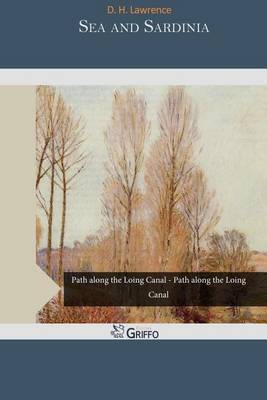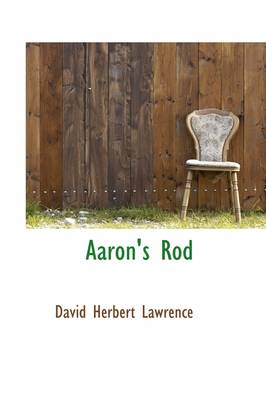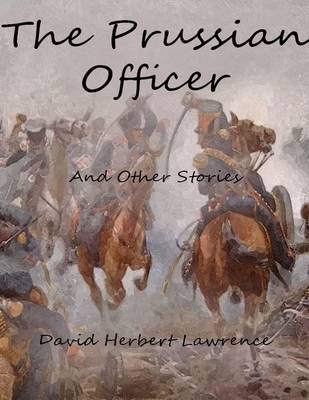Classic, 20th-Century, Penguin
5 total works
Written after the First World War when he was living in Sicily, Sea and Sardinia records Lawrence's journey to Sardinia and back in January 1921. It reveals his response to a new landscape and people and his ability to transmute the spirit of place into literary art. Like his other travel writings the book is also a shrewd inquiry into the political and social values of an era which saw the rise of communism and fascism. On one level an indictment of contemporary materialism, Sea and Sardinia is nevertheless an optimistic book, celebrating the creativity of the human spirit and seeking in the fundamental laws which governed human nature in the past fresh inspiration for the present. This 1997 edition restores censored passages and corrects corrupt textual readings to reveal for the first time the book Lawrence himself called 'a marvel of veracity'.
Lawrence asserted that 'the proper function of a critic is to save the tale from the artist who created it'. In these highly individual, penetrating essays he has exposed 'the American whole soul' within some of that continent's major works of literature. In seeking to establish the status of writings by such authors as Poe, Melville, Fenimore Cooper and Whitman, Lawrence himself has created a classic work. Studies in Classic American Literature is valuable not only for the light it sheds on eighteenth- and nineteenth-century American consciousness, telling 'the truth of the day', but also as a prime example of Lawrence's learning, passion and integrity of judgement.
For more than seventy years, Penguin has been the leading publisher of classic literature in the English-speaking world. With more than 1,700 titles, Penguin Classics represents a global bookshelf of the best works throughout history and across genres and disciplines. Readers trust the series to provide authoritative texts enhanced by introductions and notes by distinguished scholars and contemporary authors, as well as up-to-date translations by award-winning translators.
For more than seventy years, Penguin has been the leading publisher of classic literature in the English-speaking world. With more than 1,700 titles, Penguin Classics represents a global bookshelf of the best works throughout history and across genres and disciplines. Readers trust the series to provide authoritative texts enhanced by introductions and notes by distinguished scholars and contemporary authors, as well as up-to-date translations by award-winning translators.
Lawrence called Aaron's Rod 'the last of my serious English novels - the end of The Rainbow, Women in Love line.' Written in the years following the First World War, Aaron's Rod questions many of the accepted social and political institutions of Lawrence's own generation and raises issues still important in our time. Aaron's Rod, completed in 1921,was censored by both Lawrence's American and English publishers. The Cambridge Edition of the novel, based on the only authoritative surviving typescript, restores these cut passages and eliminates the errors and house-styling of previous editions. The volume contains an introduction setting out the genesis of the novel, its transmission, publishing history and reception, as well as explanatory notes and a textual apparatus. The appendix contains some early cancelled passages from the novel, here published for the first time, which reveal the kinds of conceptual and stylistic changes that often occurred in Lawrence's revisions.
The Prussian Officer and Other Stories is a collection of early short stories by D. H. Lawrence which Duckworth, his London publisher, brought out on 26 November 1914. An American edition was produced by B W Huebsch in 1916. Reaching new levels of feeling and experience, these stories range from the tale of a Prussian officer who drives his orderly towards a bloody reckoning, to the strangely exotic elements of 'A Fragment of Stained Glass', and the divisions within society and conflicts of the heart that form the central themes of 'Daughters of a Vicar'. Interweaving individual lives, their happiness, failures and defeats, with the profound forces of nature, stories of remarkable power and sensitivity. The stories collected in this volume are: The Prussian Officer; The Thorn in the Flesh; Daughters of the Vicar; A Fragment of Stained Glass; The Shades of Spring; Second Best; The Shadow in the Rose Garden; Goose Fair; The White Stocking; A Sick Collier; The Christening; Odour of Chrysanthemums.
Mr Noon is a sardonic tale about the amorous adventures of Gilbert Noon, a young schoolmaster in Lawrence's home county of Nottinghamshire who gets entangled with a girl, loses his job, and decides to leave the country to escape the narrow provincial middle-class morality. It was first known as a long story posthumously published in A Modern Lover (1934) and collected in the volume called Phoenix II (1968). Lawrence in fact wrote a long continuation of the novel, but the manuscript disappeared for many years. The Cambridge edition brought the two parts together for the first time. It is like a sequel to Sons and Lovers, but much more straightforwardly autobiographical. The publication of the complete work added a new work of major importance to the canon of a great writer, and was widely hailed as a major literary event.



